Want Customers? Inbound Marketing Strategy Works.
By Jaco Grobbelaar on Wed, Jun 28, 2023 @ 05:00 AM
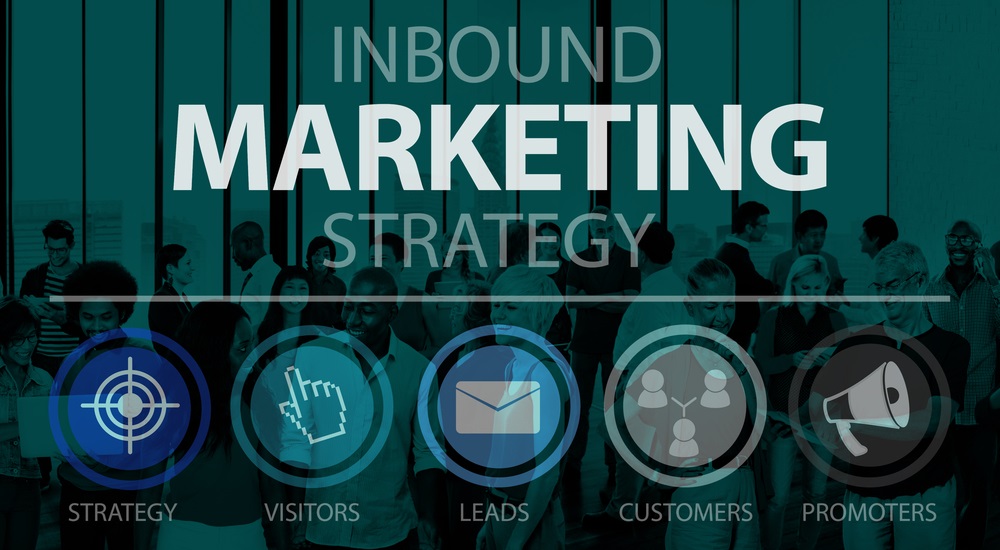
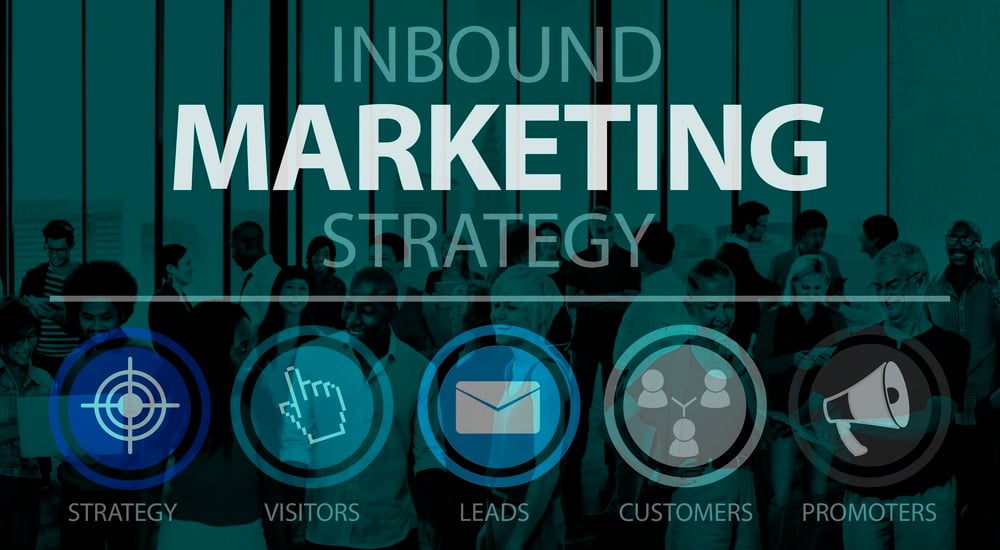
[This article was originally published in September 2020 and has been expanded and revised.]
If you've been in business for any length of time you know there's several types of marketing approaches - including inbound marketing strategy.
The question is how can you know what is the best marketing strategy to use?
Why Inbound Marketing Strategy is a Powerhouse Approach
If you're new to the concept you may be wondering what inbound marketing is. Fair enough. A brief, high-level description can be found from our friends at HubSpot,
"Inbound marketing is a business methodology that attracts customers by creating valuable content and experiences tailored to them. While outbound marketing interrupts your audience with content they don’t always want, inbound marketing forms connections they are looking for and solves problems they already have."
In fact, HubSpot's CEO and co-founder, Brian Halligan, coined the term “inbound marketing.”
According to one article, Halligan, his partner, Dharmesh Shah, and specialist advisor David Meerman Scott, saw that the Internet was changing the world of marketing. Combining their ideas with existing marketing theories resulted in the art and science of what they called "inbound marketing."
Simply put, an inbound marketing strategy works by attracting customers with content that is relevant and helpful. It is a cost-effective way for small businesses to attract and engage with potential customers online. Some of the benefits of inbound marketing include:
- Increased brand awareness
- Improved customer engagement
- Higher lead conversion rates
- More significant return on investment
- Builds long term relationships
- Lends itself to an ongoing marketing process
- Reduced expense
- Higher trust and credibility
- Quality traffic and leads
- Opportunity to learn and evolve
And it has been shown that inbound marketing is much more cost-effective than traditional marketing channels. It can generate leads, build authority, reach new markets and audiences, and provide measurable results.
Another question you might ask at this point is how does this inbound marketing approach work?
Inbound Marketing Strategy In Action
The inbound methodology utilizes a strategy that grows your organization by building meaningful and lasting relationships with consumers, prospects, and customers. You could think of it as "online dating" for leads and prospects, except that it's far more successful.
Inbound marketing allows your business to value your audience and empower them to reach their goals at any stage in their journey with you.
According to HubSpot, the inbound methodology can be applied in three ways:
- Attract: drawing in the right people with valuable content and conversations that establish you as a trusted advisor with whom they want to engage.
- Engage: presenting insights and solutions that align with their pain points and goals so they are more likely to buy from you.
- Delight: providing help and support to empower your customers to find success with their purchase.
Here's a great graphic that illustrates the concept of the inbound marketing strategy:
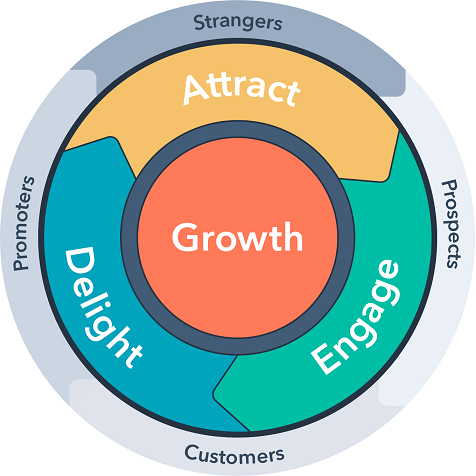
[Graphic courtesy HubSpot]
When your customers are successful, and they share that success with others, this can attract new prospects to your company and create a self-sustaining loop. This is how your organization can build its marketing momentum.
Unlocking Success: The Transformative Benefits of Inbound Marketing Strategy for Small Businesses
In the digital age, where customers are more discerning and traditional marketing strategies struggle to make an impact, small businesses need a powerful and cost-effective solution to thrive in a highly competitive landscape.
Enter inbound marketing, an approach that revolutionizes the way businesses attract, engage, and delight their target audience.
Inbound marketing offers a myriad of benefits specifically tailored to the needs of small businesses, empowering them to forge stronger connections, amplify their online presence, and achieve sustainable growth. Here is an overview of the transformative benefits that an inbound marketing strategy can offer your small business:
-
Attracting the Right Audience: Inbound marketing focuses on creating valuable content that aligns with the interests and needs of your target audience. By developing compelling blog posts, social media content, and informative videos, small businesses can attract qualified leads who are genuinely interested in their products or services. This targeted approach ensures that marketing efforts are not wasted on disinterested individuals, resulting in higher conversion rates and improved ROI.
-
Building Brand Authority: Inbound marketing empowers small businesses to position themselves as thought leaders and industry experts. By consistently producing high-quality content that educates and informs, businesses can establish credibility, trust, and authority within their niche. This elevates their brand reputation, enhances customer loyalty, and opens doors for collaboration opportunities, ultimately leading to increased sales and business growth.
-
Cost-Effectiveness: Compared to traditional outbound marketing methods, inbound marketing offers a cost-effective alternative for small businesses with limited marketing budgets. By leveraging content creation, search engine optimization (SEO), and social media, businesses can generate organic traffic and engage with their audience without hefty advertising costs. Inbound marketing allows small businesses to maximize their return on investment by targeting the right audience at a fraction of the cost of traditional advertising channels.
-
Long-Term Results: One of the most significant advantages of inbound marketing is its long-term impact. Unlike outbound marketing, which typically provides short-lived results, inbound marketing strategies, such as search engine optimization and content marketing, continue to generate value over time. By creating evergreen content that remains relevant and searchable, small businesses can establish a sustainable foundation for continuous lead generation and brand awareness, ensuring steady growth in the long run.
-
Enhanced Customer Engagement: Inbound marketing emphasizes meaningful interactions with customers. By leveraging various channels such as social media, blogs, and email marketing, small businesses can engage in conversations with their audience, address their concerns, and provide personalized solutions. This two-way communication fosters a sense of community and brand loyalty, enabling businesses to create lasting relationships with their customers and turn them into brand advocates.
-
Measurable Results: Inbound marketing provides small businesses with access to valuable analytics and data that can inform their decision-making process. By leveraging tools like Google Analytics, businesses can track website traffic, user engagement, conversion rates, and other key performance indicators (KPIs). This data-driven approach allows small businesses to refine their marketing strategies, optimize their campaigns, and make informed decisions to drive better results.
-
Scalability and Adaptability: Inbound marketing strategies are highly scalable and adaptable, making them ideal for small businesses looking to grow and evolve. As businesses expand, they can easily scale their content production, optimize their website, and diversify their marketing channels to reach a broader audience. Inbound marketing also enables businesses to adapt quickly to changing market trends and customer preferences, ensuring that they stay ahead of the competition.
Inbound marketing has emerged as a game-changer for small businesses, offering an array of benefits that can transform their marketing efforts and drive sustainable growth.
From attracting the right audience and building brand authority to cost-effectiveness, long-term results, enhanced customer engagement, measurable results, and scalability, inbound marketing empowers small businesses to level the playing field and compete with larger enterprises.
By embracing an inbound marketing strategy, small businesses can unlock their full potential, connect with their target audience on a deeper level, and achieve remarkable success in today's digital world.
Connecting the Dots of Inbound Marketing Strategy
Unlike the interruptive, old school strategies that use tactics like broadcast advertising and other "spray and pray" methods to get attention, inbound marketing leverages value, service, and the Internet to attract, engage, and delight prospects.
Attraction Tactics
Inbound marketing attracts your ideal audience and buyer personas through content creation and development. To reach your audience, start by creating and publishing content — such as blog articles, content offers, and social media — that provide value.
Search Engine Optimization (SEO) can supercharge the attraction for your audience by optimizing your great content. An SEO strategy will allow your content and information to organically appear on the search engine results page (SERP) as your ideal audience searches for this information.
Engagement Tactics
The goal of engagement is to communicate with prospects in such a way as to cause them to want to build long-term relationships with you. This can include how you handle and manage your inbound sales calls, focusing on customer service, and always "selling" a solution selling rather than a product.
This can then ensure that all transactions end in mutually beneficial agreements between your customers and your business. This happens with you consistently provide value for your ideal customers.
Delighting Tactics
Delighting customers means ensuring that they are happy, satisfied, and well-supported long after a sale or purchase is made. This can require that your team members function as advisors and experts who assist your customers at any point.
Effectively monitoring social media is another important tactic for being able to delight your customers. Respond to your social media followers with information that helps and supports them. This serves to provide value and demonstrates that you hear and care about them.
Real customer service is focused on delighting customers by assisting and supporting customers in any situation, whether or not your business gets any value out of it. Remember, a delighted customer becomes a loyal customer, and an advocate, fan, and promoter. Every interaction matters.
Make Us Your Partners for Your Company's Inbound Marketing Strategy
When it comes to implementing your inbound marketing strategy high-quality, relevant content is one of the main keys to attracting and winning prospects and customers.
That content can take on many forms such as video, blog posts, eBooks, white papers, email, slide decks, infographics, webinars, and even the pages on your website.
However, the challenge for most business owners is in creating this never-ending need for fresh content. Then there is the additional challenge of determining how best to distribute and use that content to carry out an effective marketing strategy.
Fortunately, you don't have to attempt this on your own! Your options for implementing a successful and affordable content marketing strategy also include finding a professional firm that can work with you to maximize your efforts.
A qualified agency like BroadVision Marketing will develop a road map with an implementation time line, marketing milestones, and key deliverables. Using this road map we will create the framework and structure for us to work with you and help you to achieve your marketing goals.
We can help you make an informed decision when it comes to inbound marketing so call BroadVision Marketing today at 707-799-1238.
You May Also Like
These Related Stories
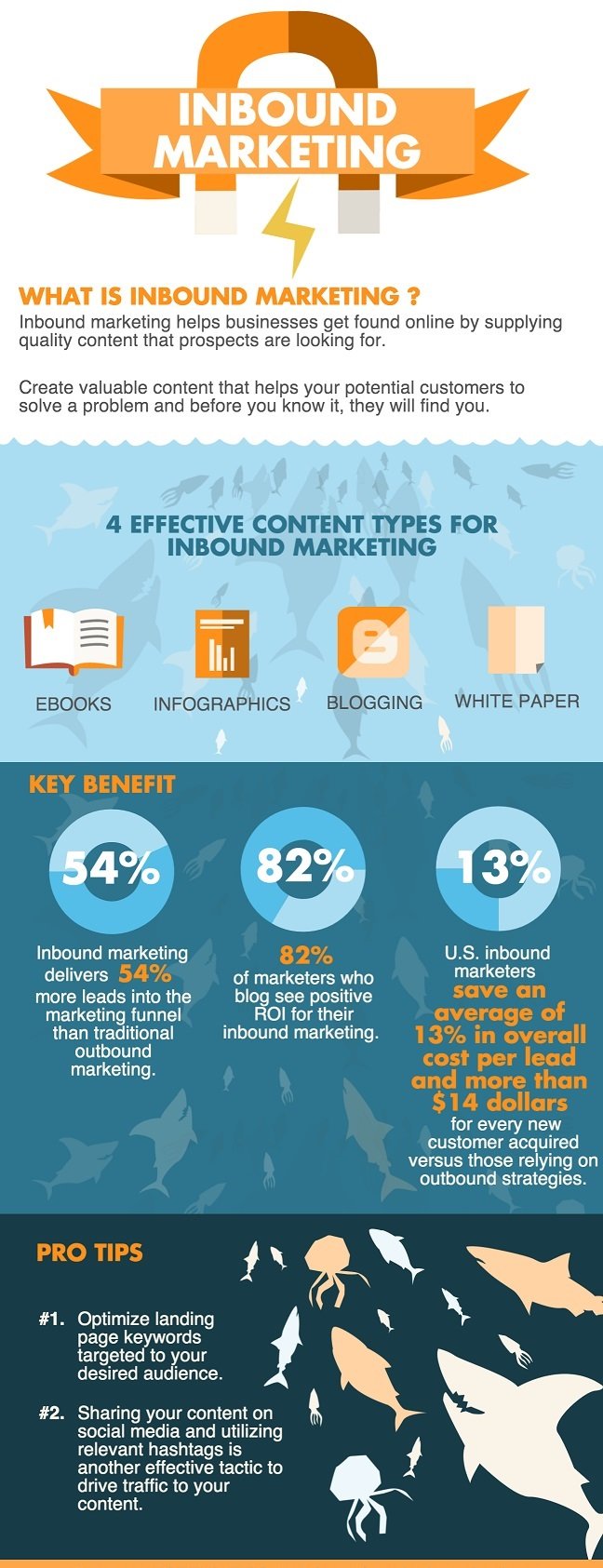
Inbound Marketing: The Marketing Strategy of Champions [Infographic]

4 Ways Inbound Marketing Rules [Infographic]

.png?width=302&height=75&name=BVM%20Logo%20-%20transparent%20(1).png)




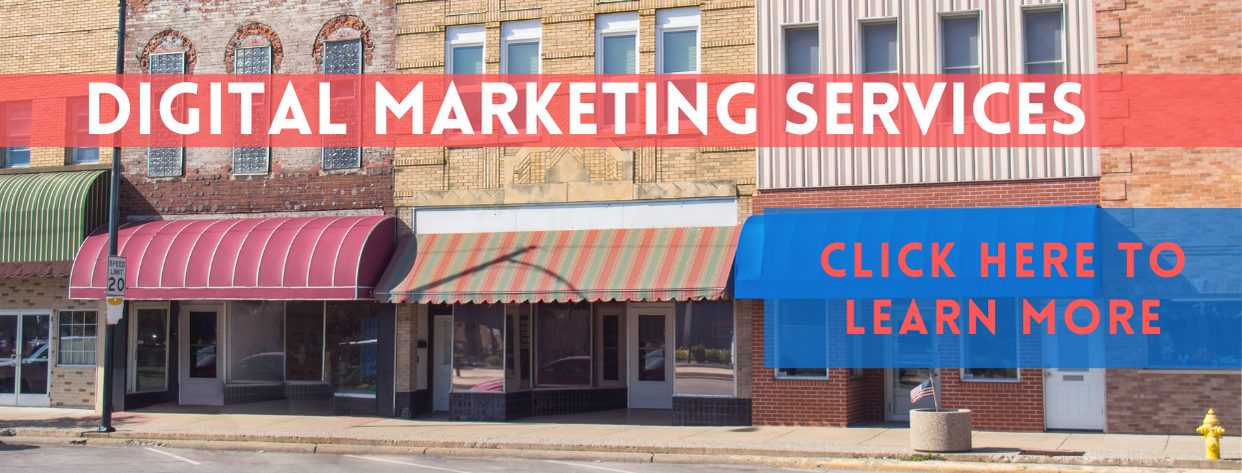
No Comments Yet
Let us know what you think